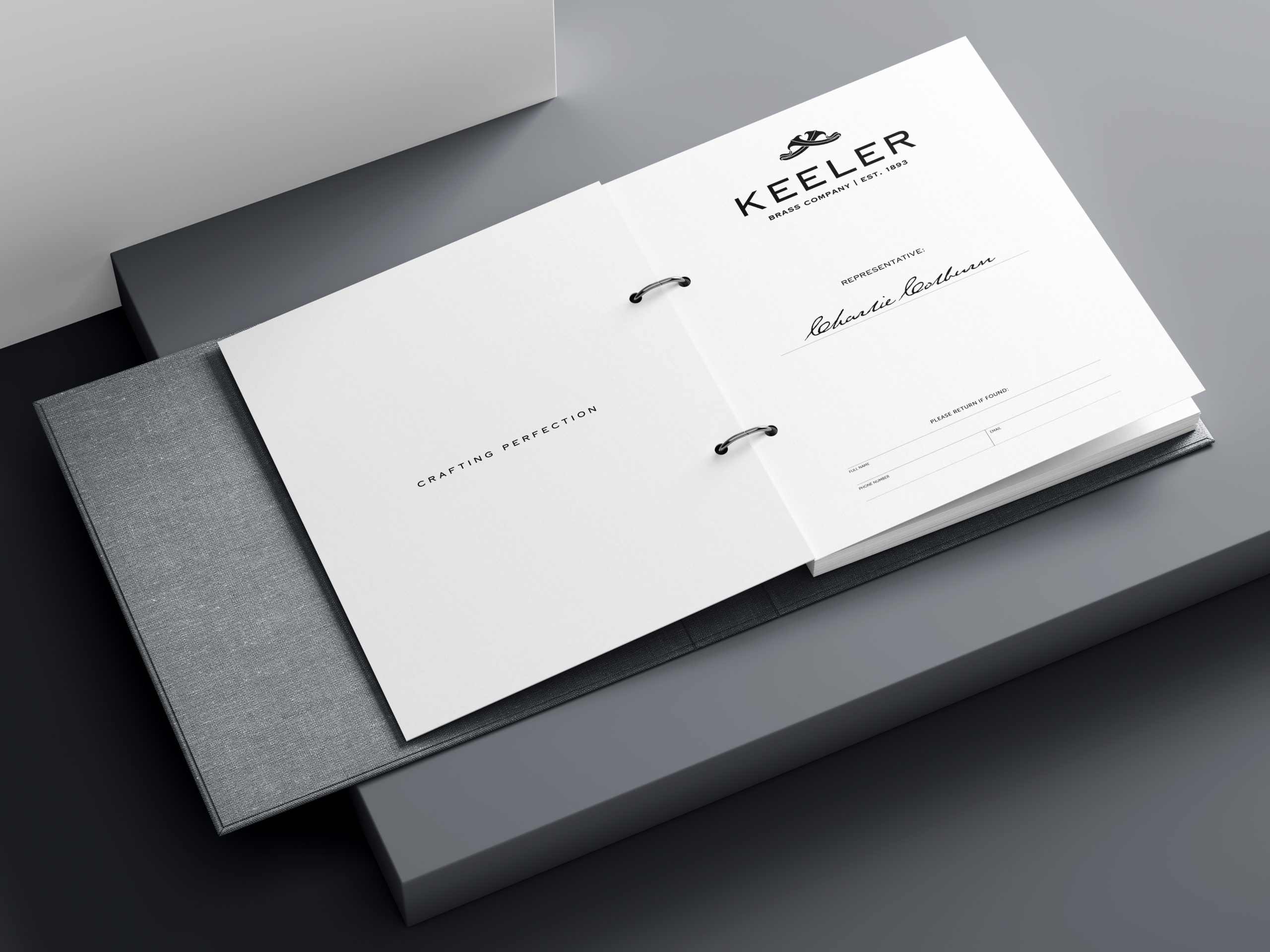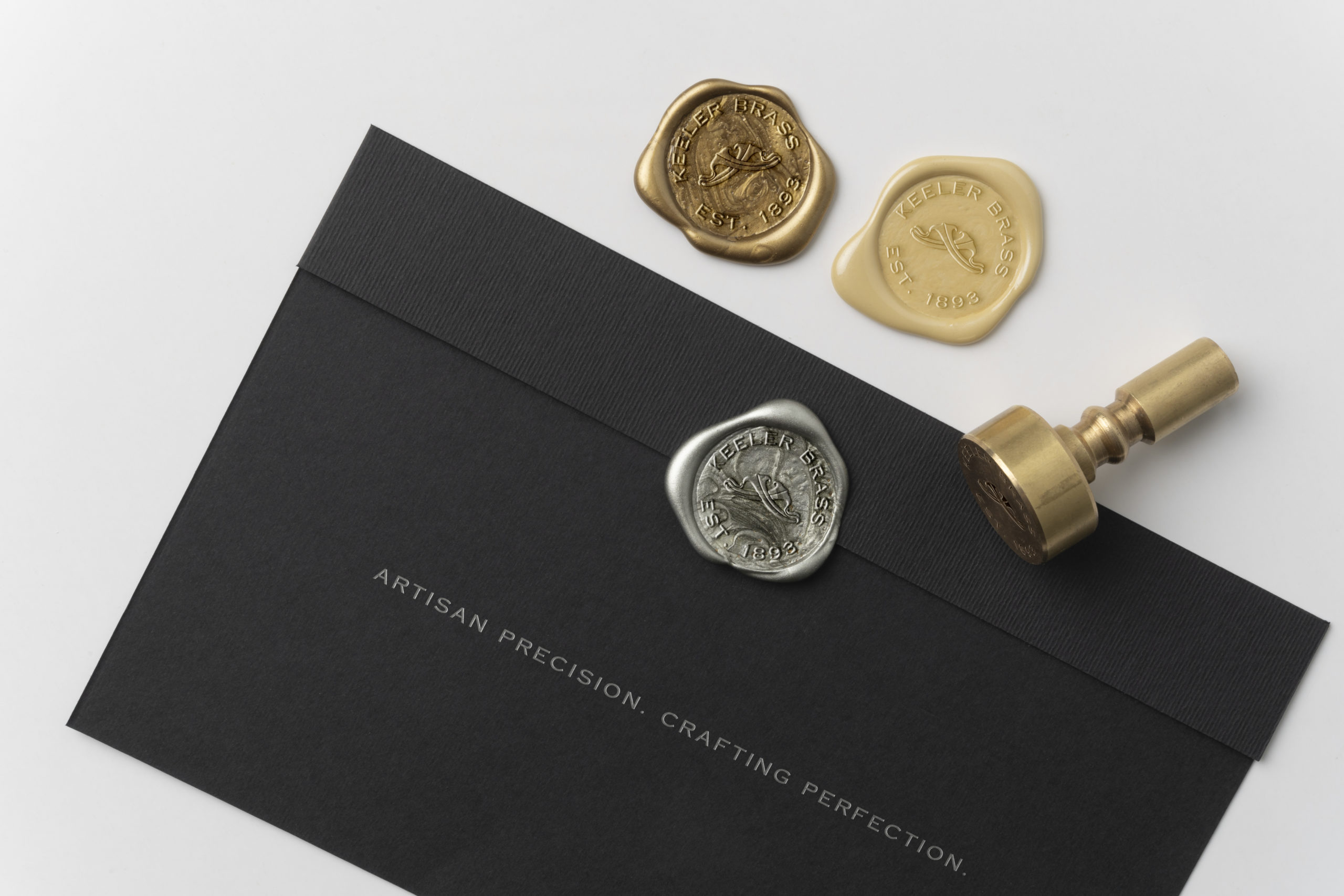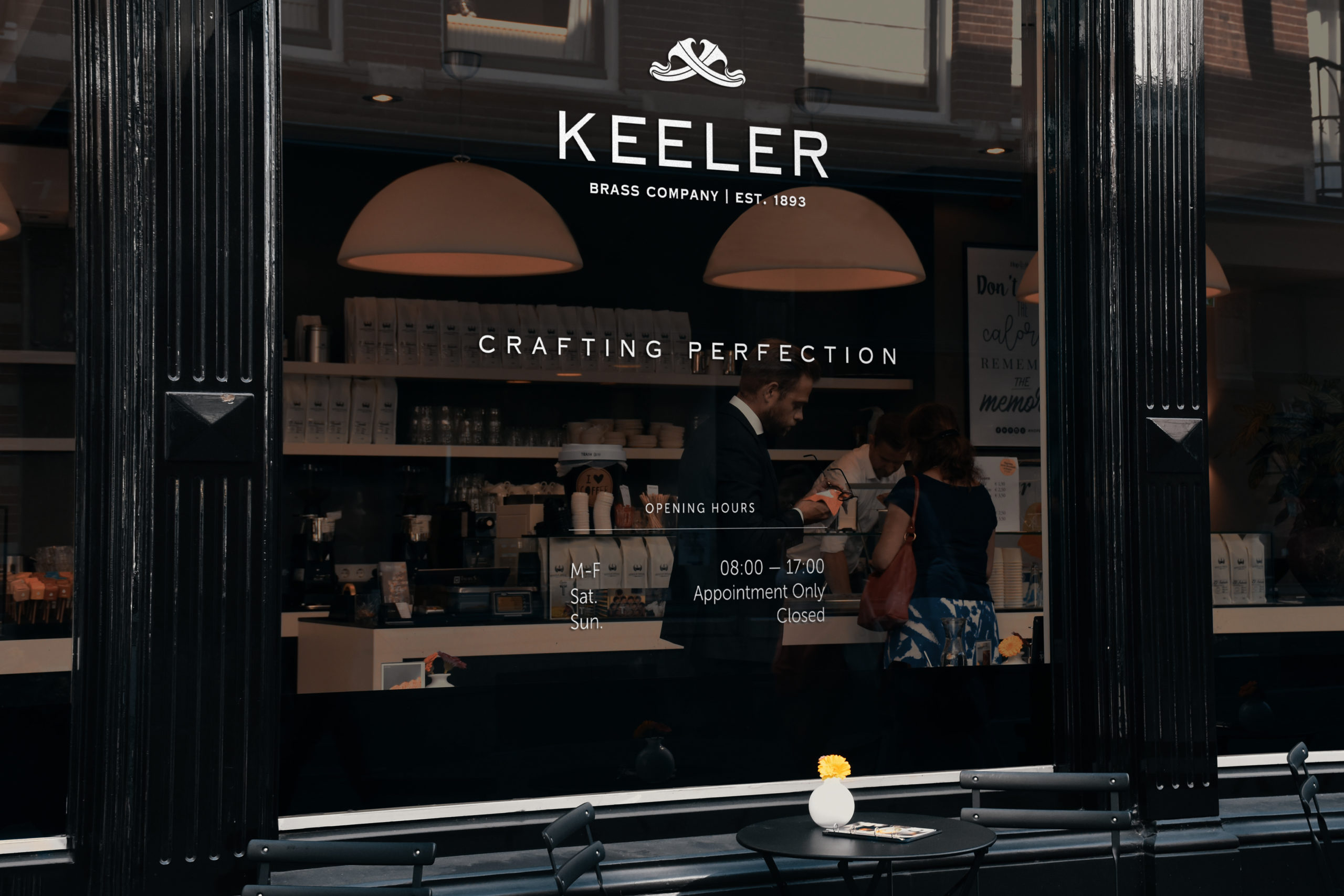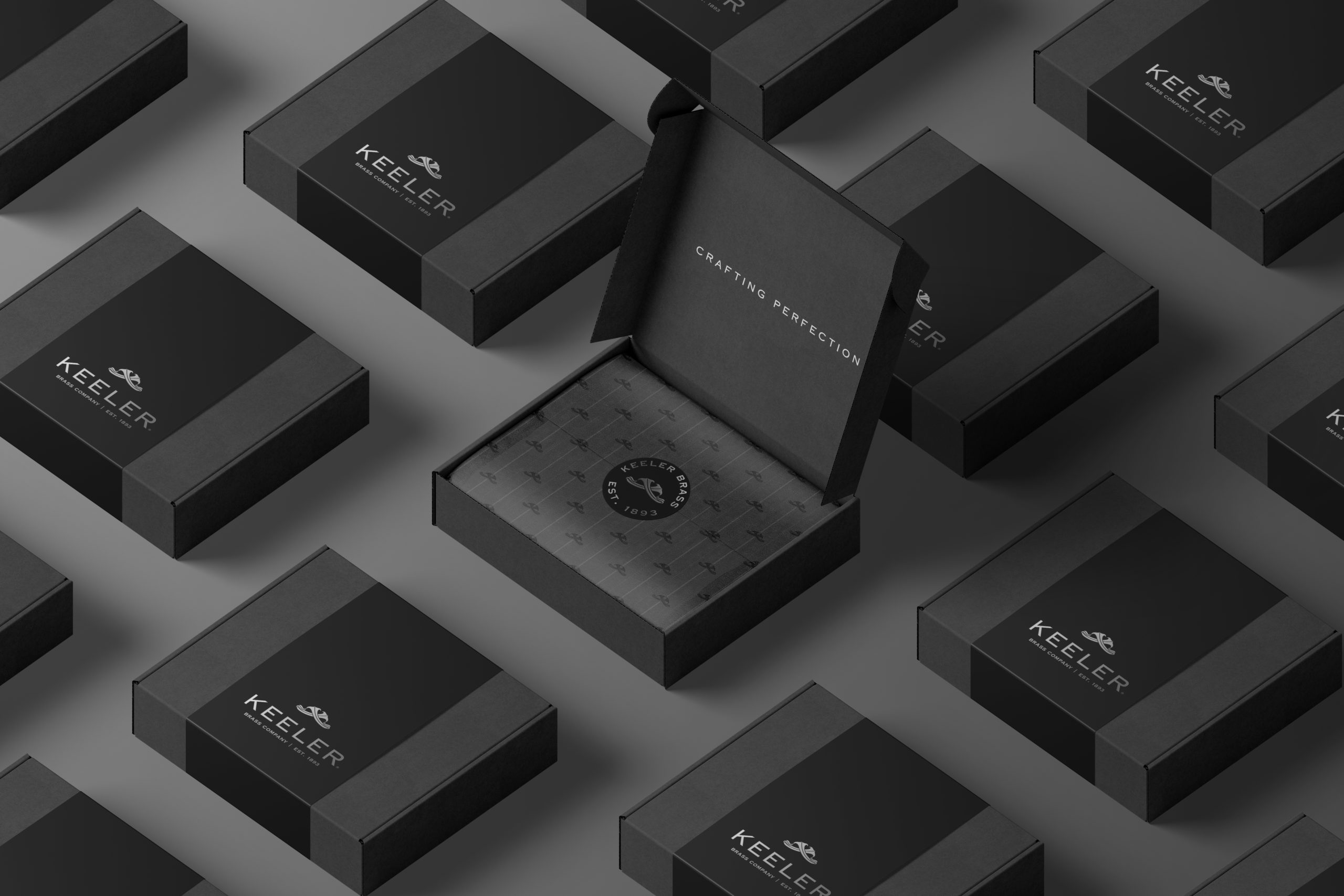Forging a Brand Identity
Established in 1893, Keeler Brass Company (KBC) has a rich history spanning over 130 years. The impetus for our rebranding journey was sparked by a unique co-branding opportunity with a luxury appliance company.
As the principal designer, I spearheaded the research, development, and realization of KBC’s brand identity, overseeing art direction, photography, and logo design. Collaborating closely with key stakeholders, I navigated an expedited timeline to breathe life into our brand’s creative vision.
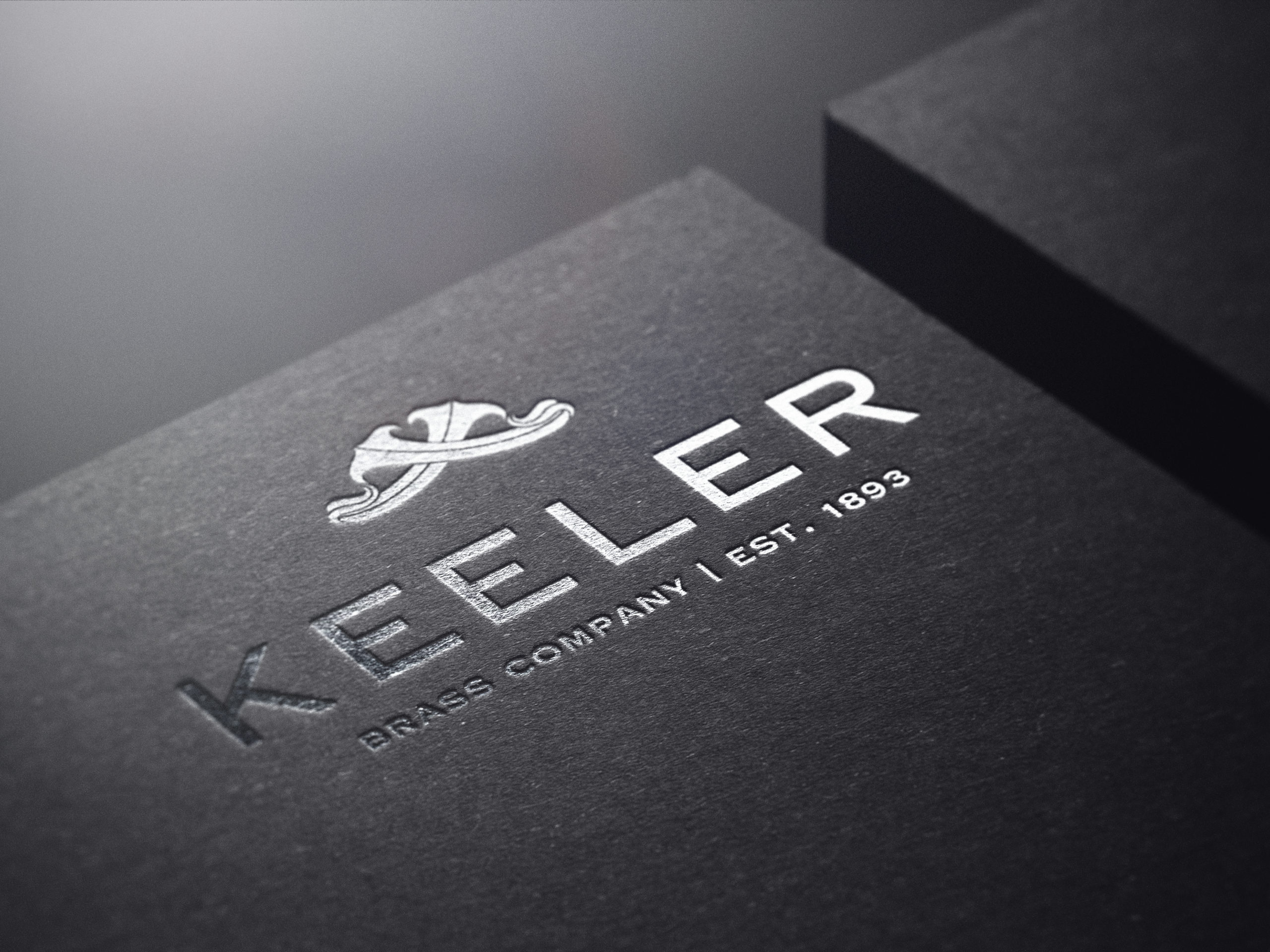
Preparation & Learning Journey
Commencing in late August 2022 and slated for completion by year-end, the branding identity project demanded meticulous attention to detail. It necessitated the cultivation of a unique aesthetic distinct from our existing brand offerings. Tasks included crafting a logo, developing a visual brand guide for cohesive execution across PR and social media platforms, designing packaging, orchestrating photoshoots and post-production, and concurrently producing a 40+ page printed lookbook alongside website development.
Amidst this compressed timeline, my focus was on cultivating a deep understanding of the future trajectory of the KBC brand. Securing alignment from key stakeholders and ensuring accountability to the envisioned brand essence were paramount at every stage.
In the absence of a formal creative director and marketing director, I turned to a selection of invaluable resources for guidance. Essential reads included David Airey’s “Identity Designed,” Radim Malinic’s “Book of Branding,” Mark Miller and Ted Vaughn’s “Culture Built My Brand,” and Michael Evamy’s “Logo,” supplemented by a plethora of online articles and resources that informed my research journey.
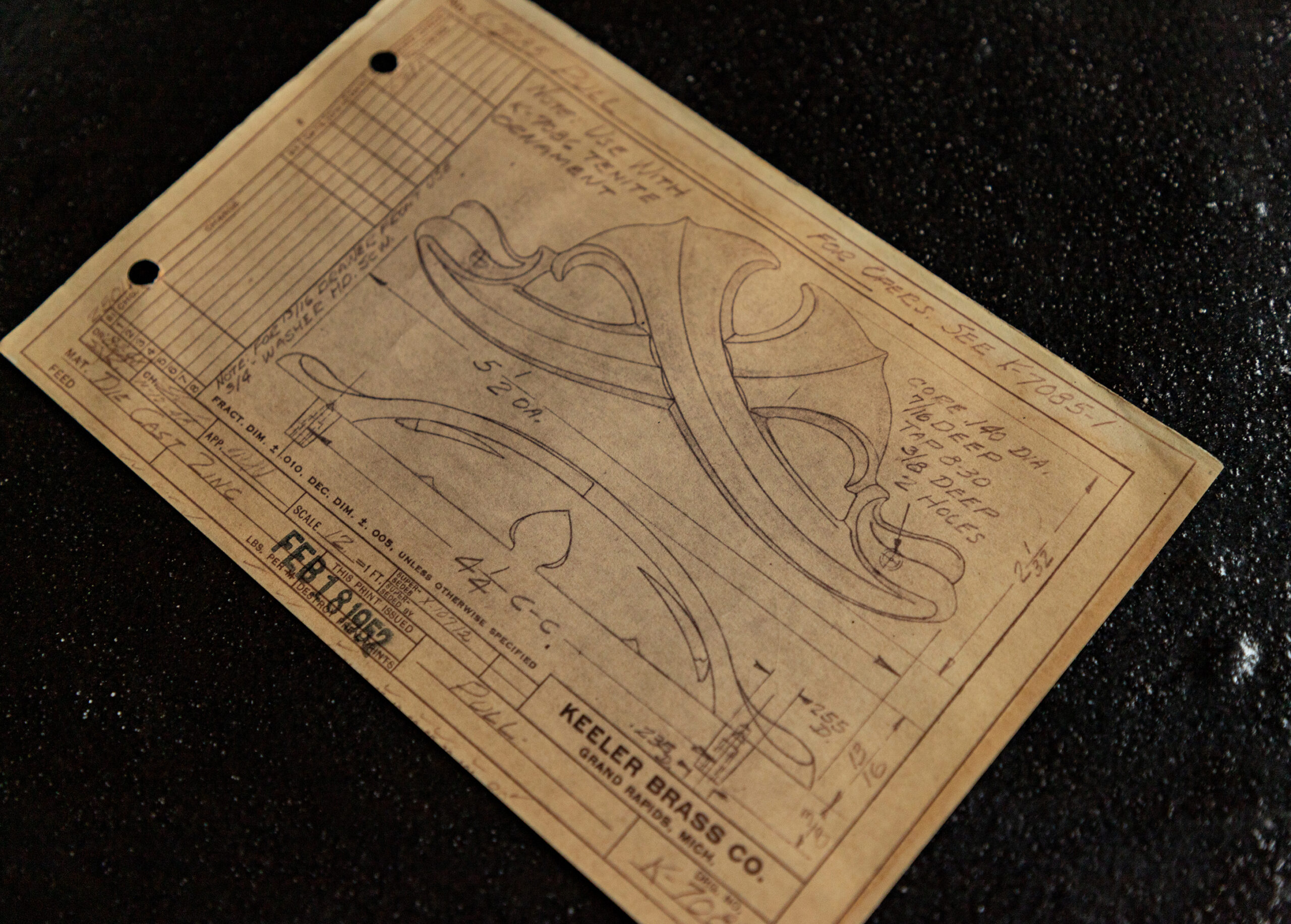
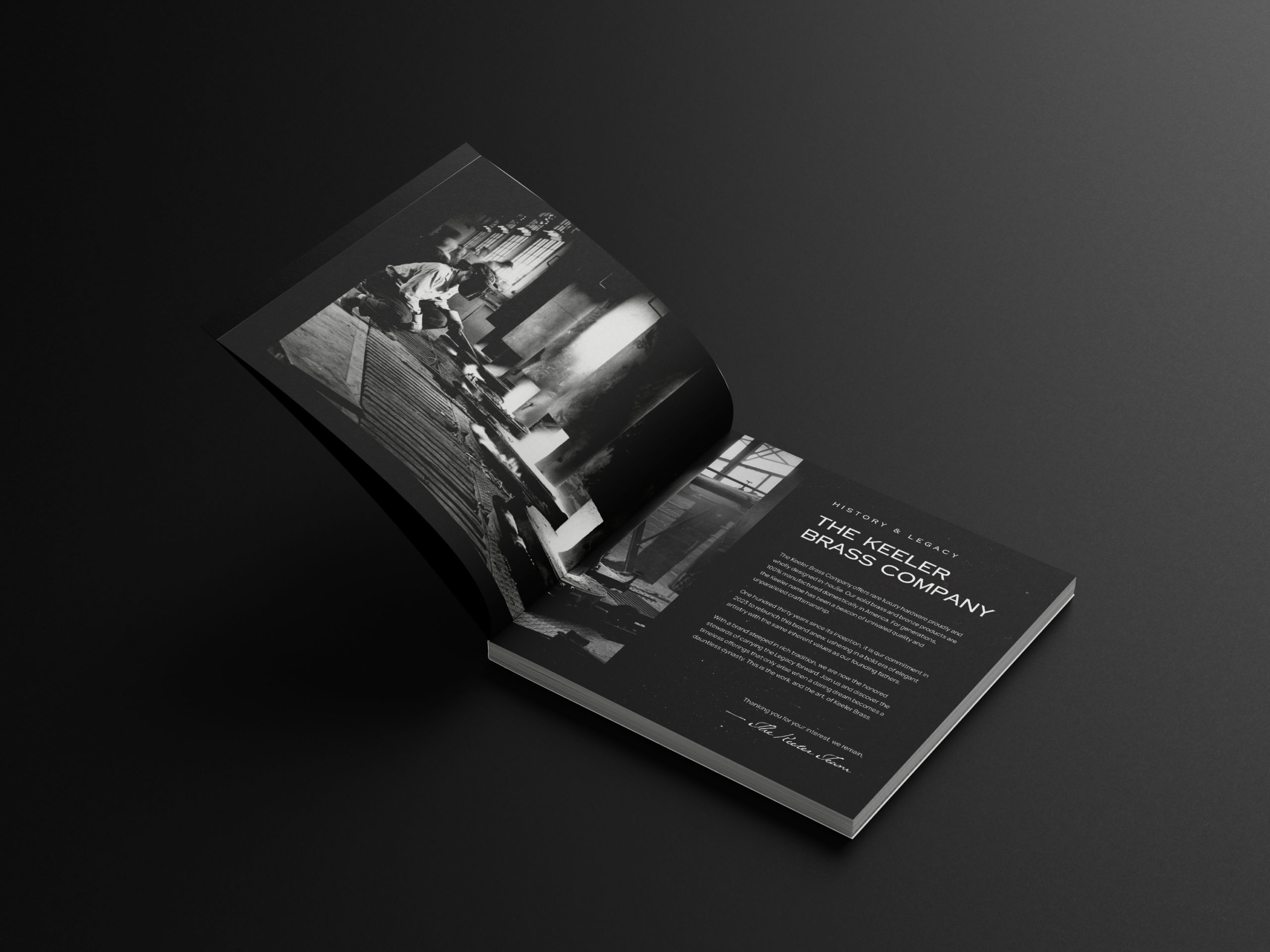
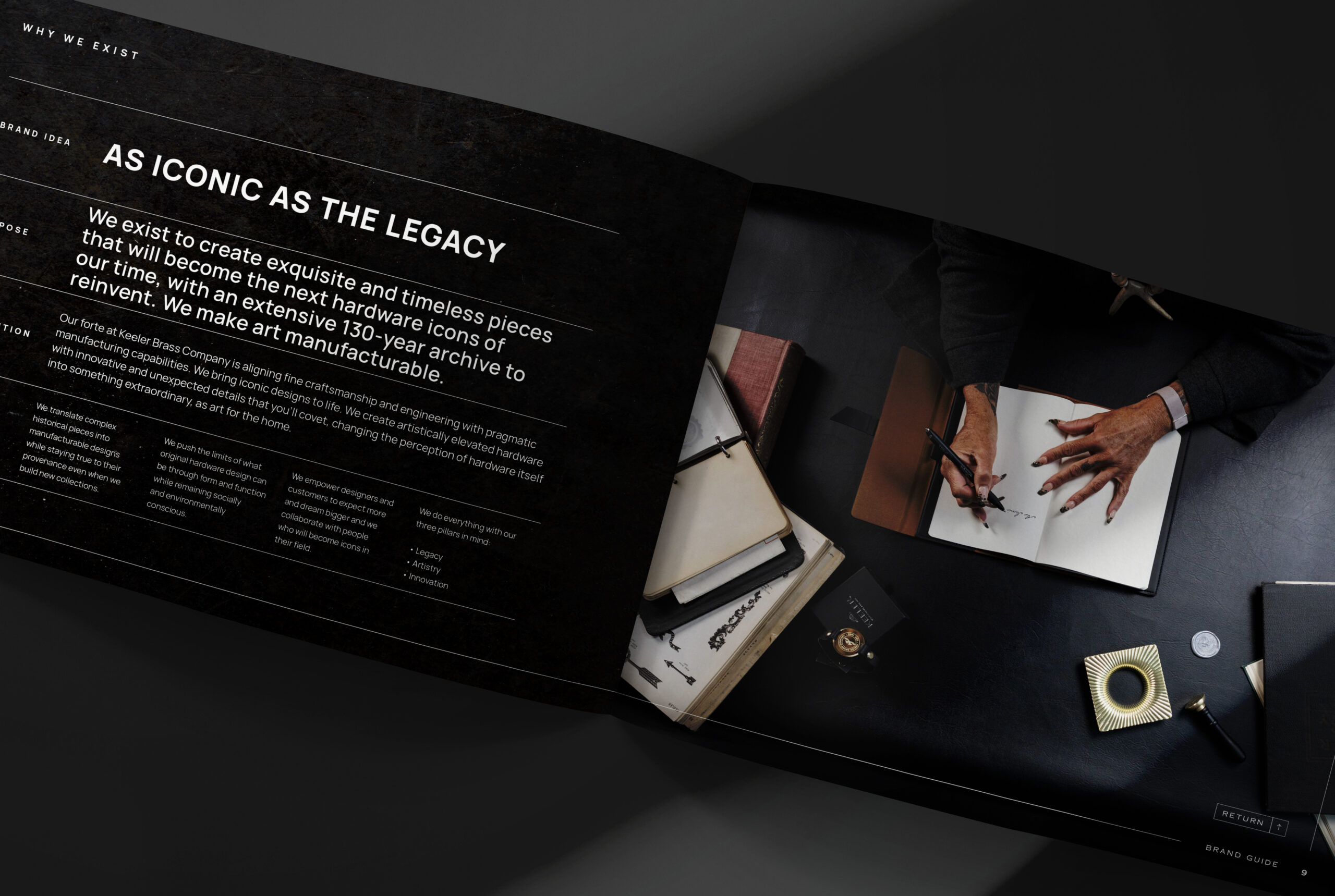
Brand Alignment Sessions
Given the size of our key stakeholder group, we conducted only a few comprehensive sessions to collectively discuss Keeler’s brand direction. To ensure efficiency, I meticulously crafted an extensive brand workshop and presentation, aiming for swift yet impactful progress. Securing democratic buy-in from all stakeholders was paramount, fostering a collaborative environment and preventing decisions from being made in isolation.
The brand workshop presentation delved into an analysis of our competitors’ histories and growth trajectories, offering valuable insights into emerging brands to watch. Notably, we examined fashion powerhouses like Ganni, Bottega Veneta, Louis Vuitton, Chanel, and Hermès, leveraging them as peripheral benchmarks to comprehend audience segmentation and tailored branding strategies.
While our aspiration is to elevate luxury hardware to an art form, we recognized the importance of strategic foresight. My objective was to prompt stakeholders to engage deeply in envisioning our brand’s trajectory, fostering thoughtful discussions about our future aspirations and positioning within the industry.
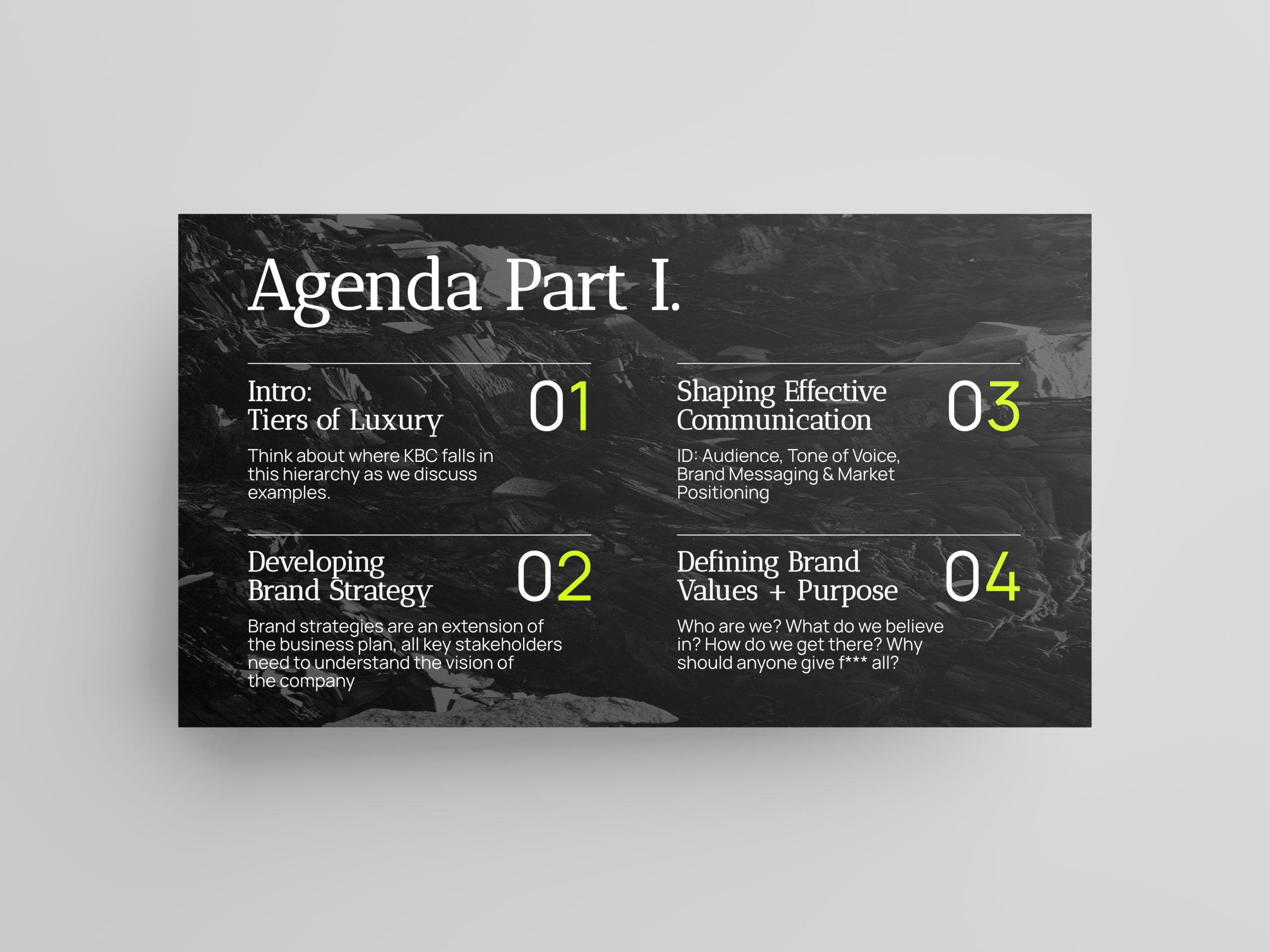
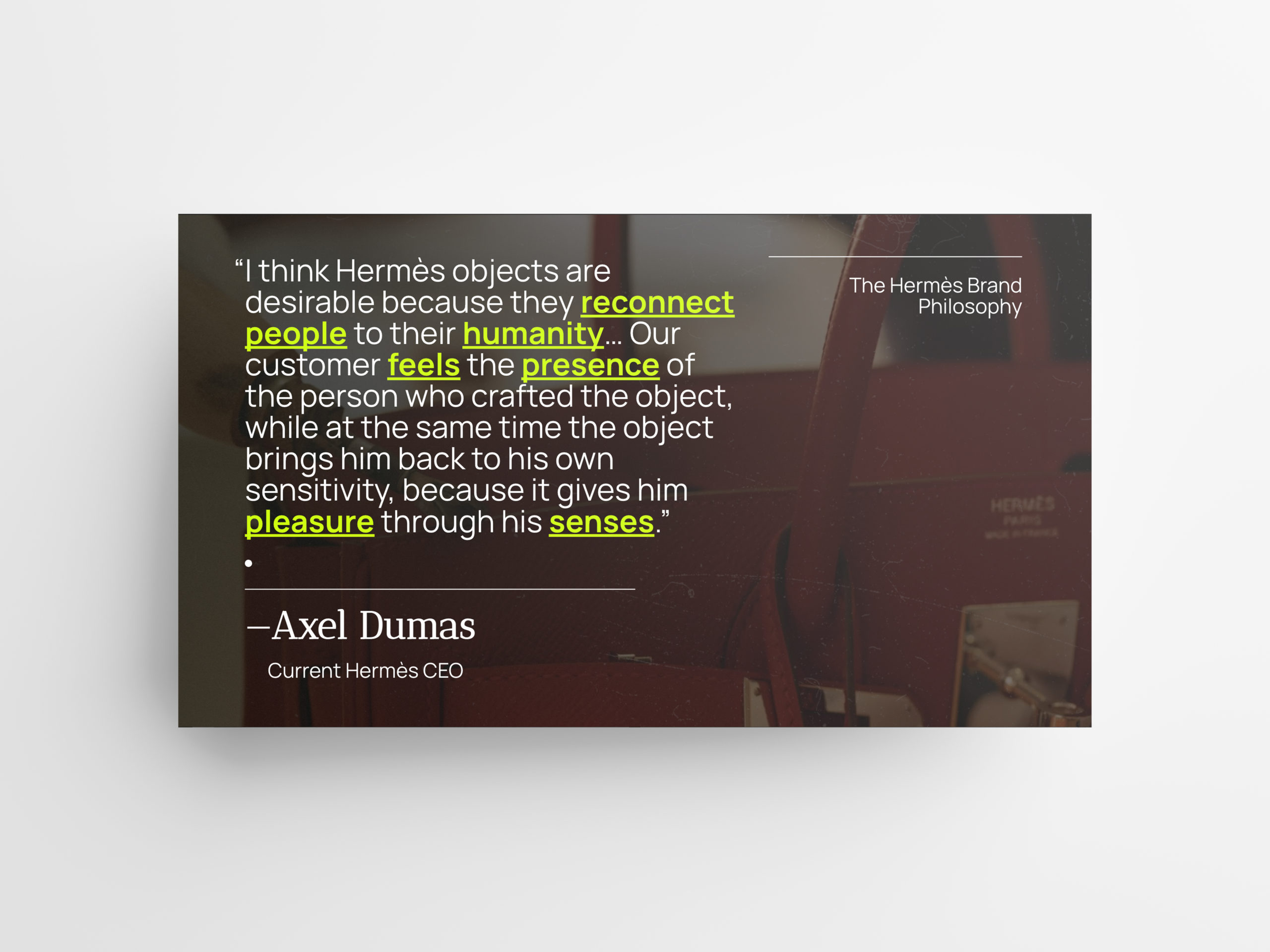
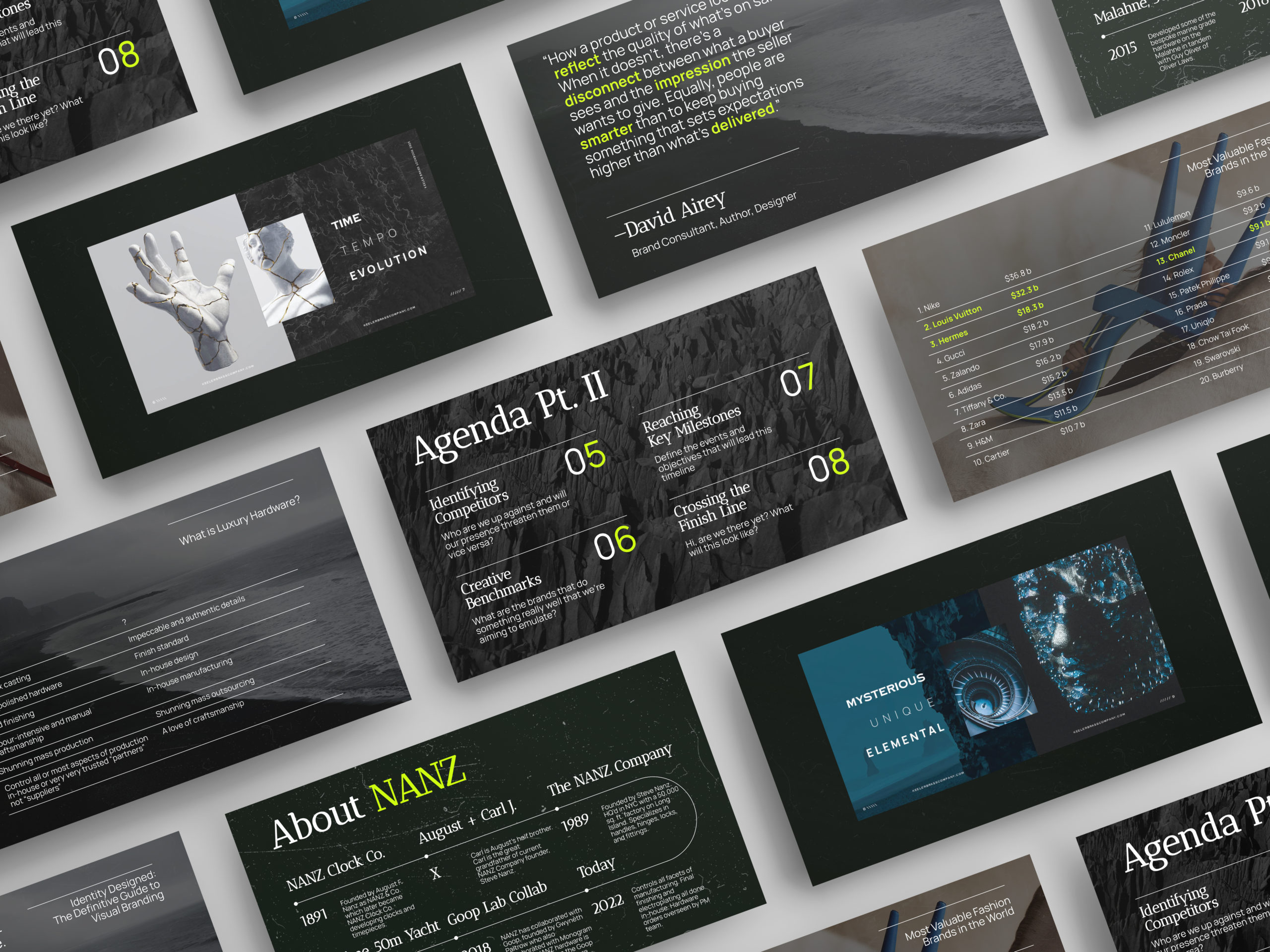
Logo Evolution
In just a couple of intense days, we generated numerous logo designs and meticulously explored countless font options. Achieving unanimous agreement among all key stakeholders proved to be a challenging task.
However, I am pleased to affirm that the final iteration of the KBC logo has garnered satisfaction from all parties involved, ranging from the CEO to departmental directors and the designer. Rooted in heritage, the design draws inspiration from K7085, found on page 124 of Keeler’s 1953 edition of Modern Furniture Hardware. Further historical exploration unearthed an even earlier rendition dated February 18th, 1952, suggesting its original inception.
A significant source of inspiration for the logo design stemmed from Creed, the esteemed French perfumer established in 1760 during the reign of King George III. Their sharp, modern logo evokes a sense of historical grandeur, akin to two crossed swords without literal representation.
For the Keeler logo, the mandate was to strike a balance between tradition and modernity, as one stakeholder aptly put it, “one foot in the old, one in the new.” This served as the essence of the creative brief. The final iteration achieves this delicate equilibrium through two key elements:
Firstly, the acanthus logomark draws from a historical design found within the Keeler archives, offering a blend of familiarity and novelty. It presents a simplified yet distinctive representation of an iconic motif historically associated with Greek columns and Byzantine architecture.
Secondly, the font choice possesses historical roots but underwent modernization by shedding its serifs for the primary “KEELER” typeface. Each component of the logo bears a rich historical lineage, yet has been contemporized through a process of simplification.
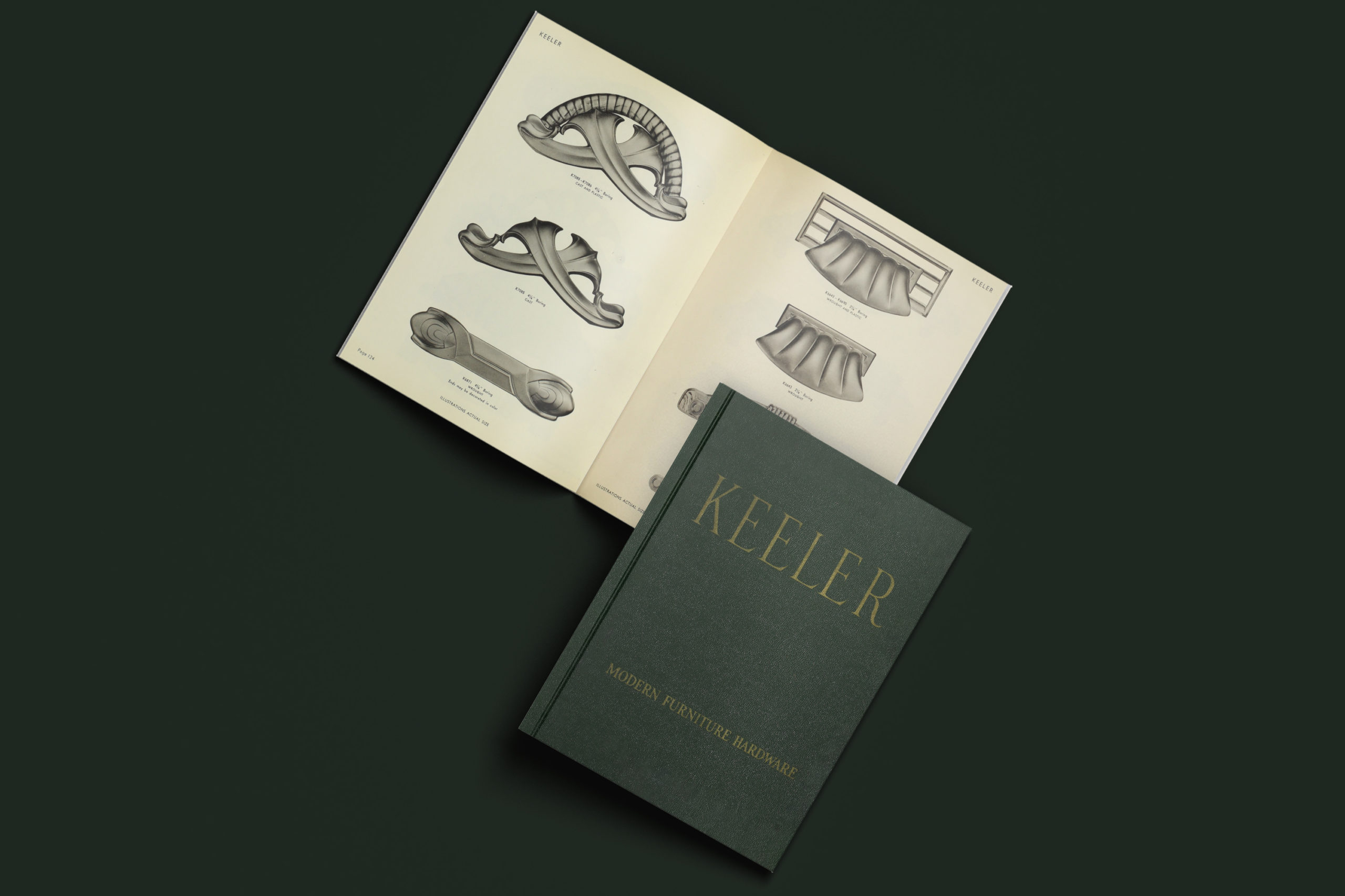
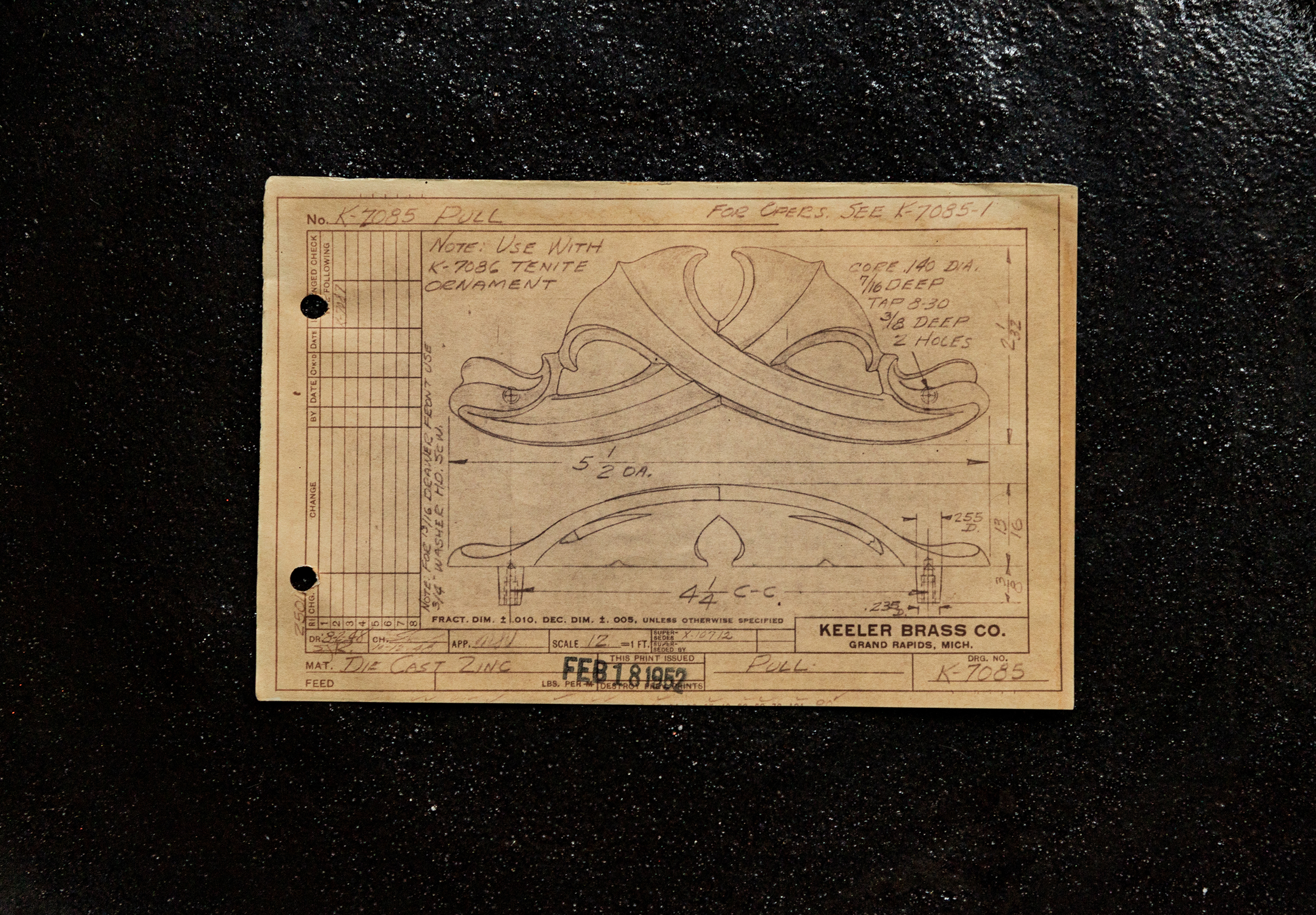
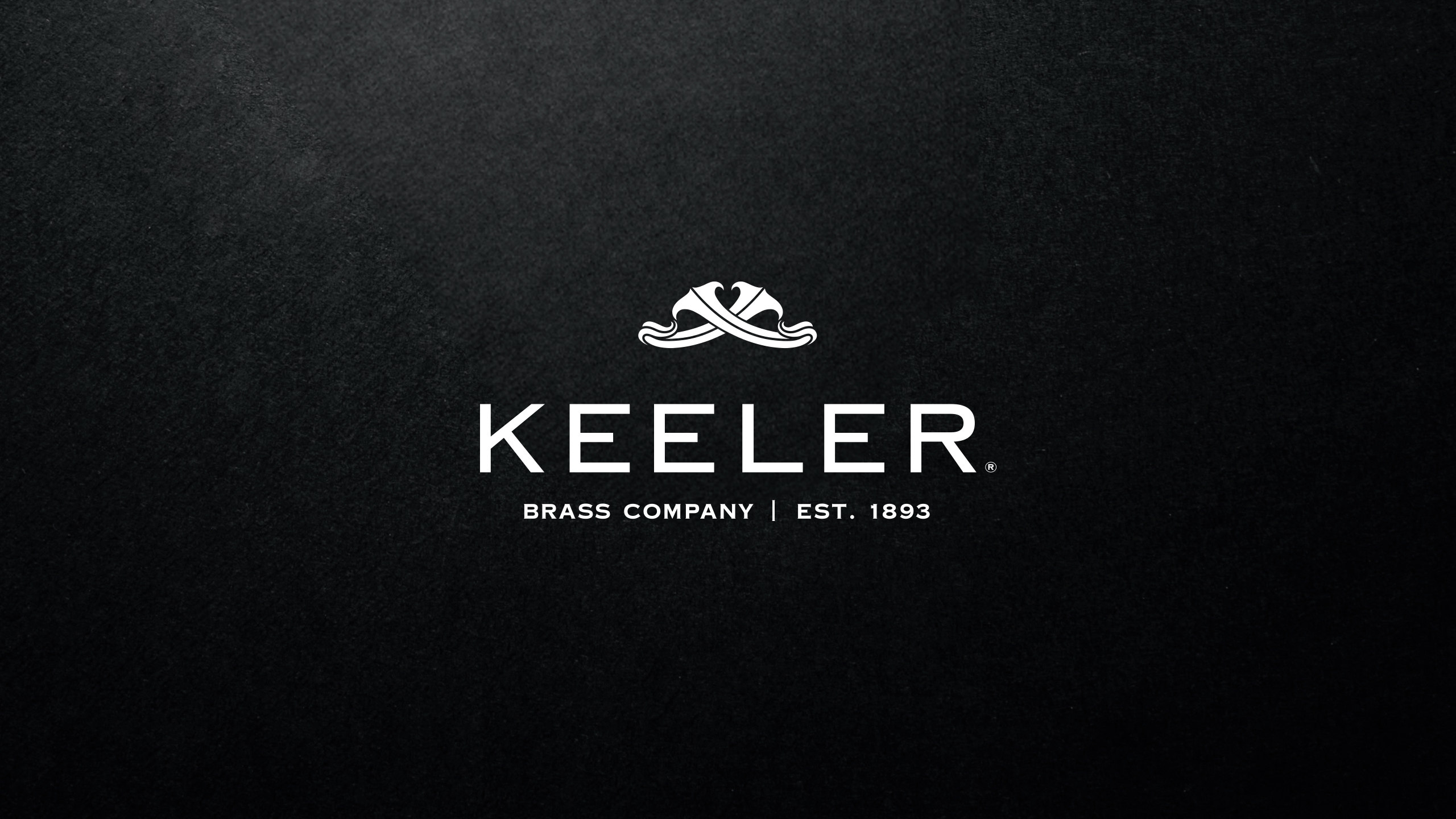
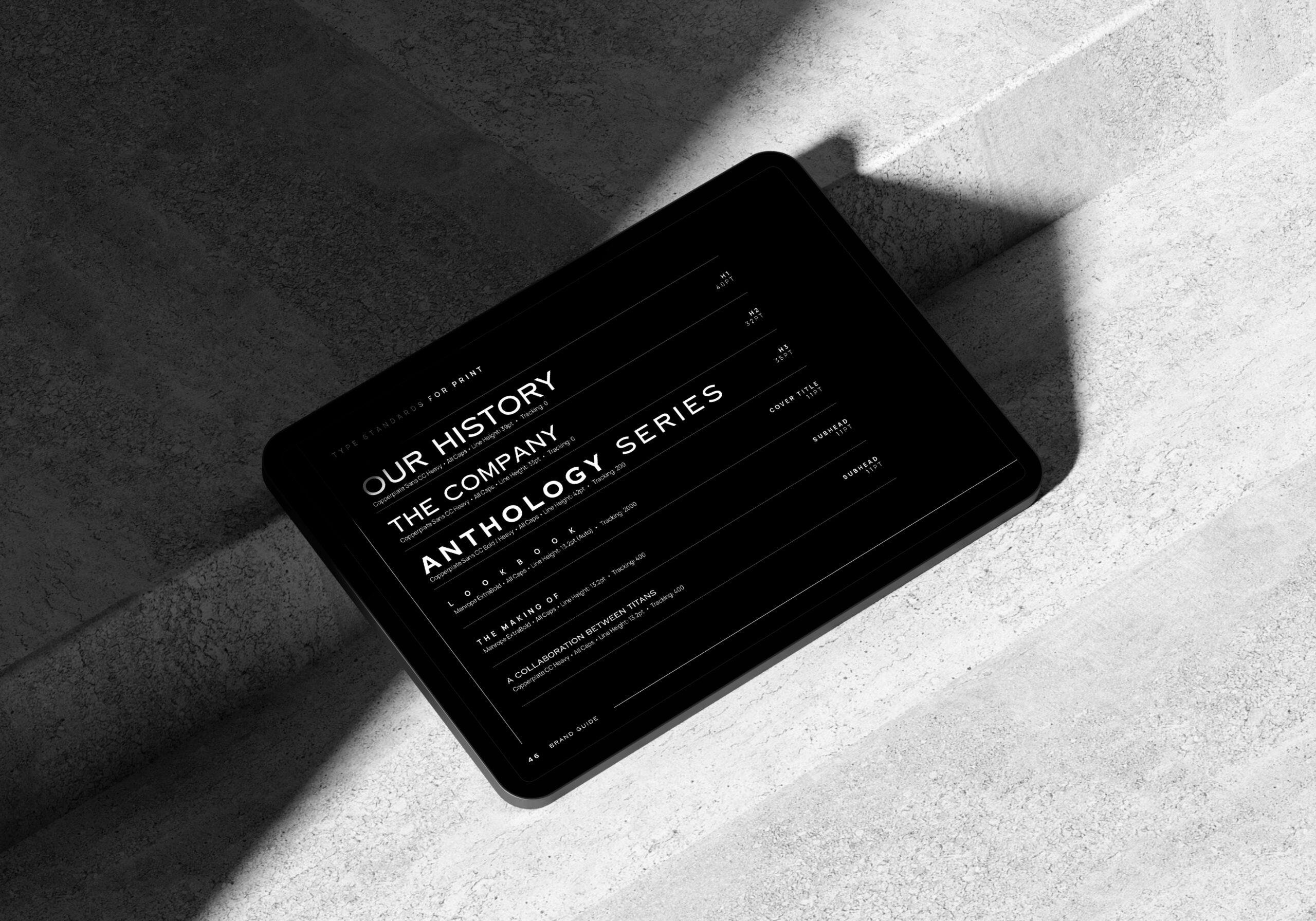
The Font
The chosen typeface for our logo and brand is Copperplate CC, crafted by Owen Earl of Cowboy Collective. Inspired by the original plates found in the 1923 American Type Founders Specimen Book & Catalogue, Copperplate CC embodies a timeless elegance. While each type designer imbues their interpretation with unique nuances during digitization, Owen’s rendition stands out for its meticulous attention to detail, particularly in punctuation marks and numerals—a level of care often lacking in pre-installed versions of Copperplate.
Originating in 1901, the original Copperplate font was conceived by the legendary American type designer, Frederic William Goudy, specifically for engraved metal use. This historical connection deeply resonated with the heritage of the Keeler brand, which has recently relaunched its focus on crafting exquisite decorative hardware. In collaboration with Owen, whose expertise in typography is formidable, we embarked on discussions that ultimately led to the development of a serif-free Copperplate CC variant tailored specifically for the Keeler logo—an endeavor for which I am immensely grateful.
Font History
The selection of our font aligns closely with our brand ethos, as all our products are developed and manufactured domestically in the USA. Thus, opting for a font with both historical significance and American origin felt especially fitting. If you’re intrigued by the nuances of Copperplate, here are some insights shared by Owen during our discussions:
“To get into more obscure trivia I want to talk about sans serif versions of Copperplate Gothic. Most of us today would agree that Copperplate Gothic has serifs, what else are the sharp corners at the ends of the lines? However, at the time of its creation in 1902, Copperplate Gothic was not considered a serifed font.
The word ‘Gothic’ to typographers, especially at the time, meant sans-serif. Copperplate Gothic is a strange edge case because the design of its letters belong very much to the tradition of sans-serif fonts, it is unusual, for instance, for the line width to remain uniform in serifed fonts, as it does in Copperplate. The tiny serifs also appear in places that are not typical for a serifed font, such as the bottom right side of the letter ‘N.’ Imagine you were carving letters into stone, and because of the physical process of doing so little ‘serifs’ appeared on the beginning and end of every line you drew. This is what the design of Copperplate suggests, not literally that it was designed by carving things into stone, but that the serifs are less part of the letter design and more part of their construction.”
—Owen Earl
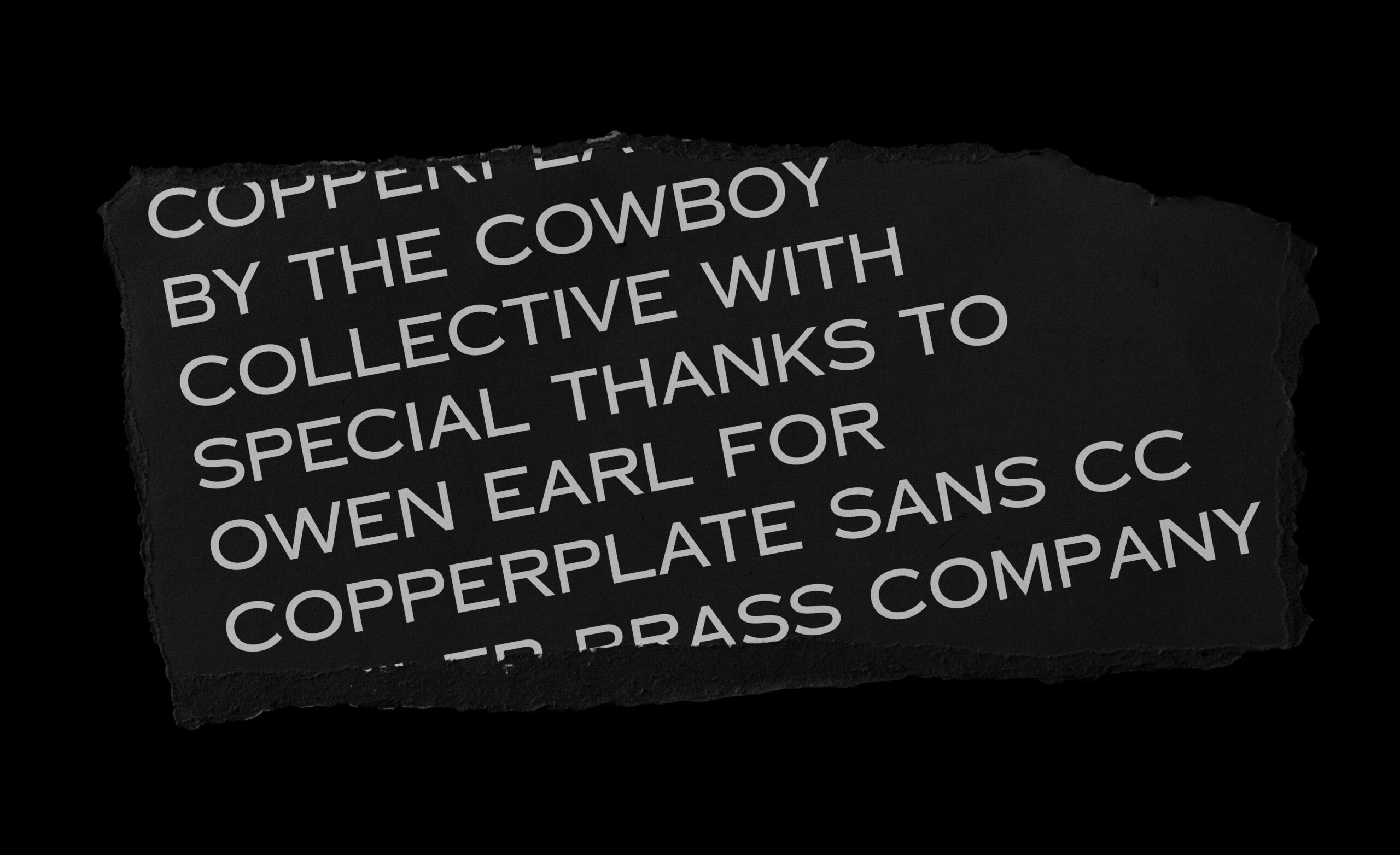
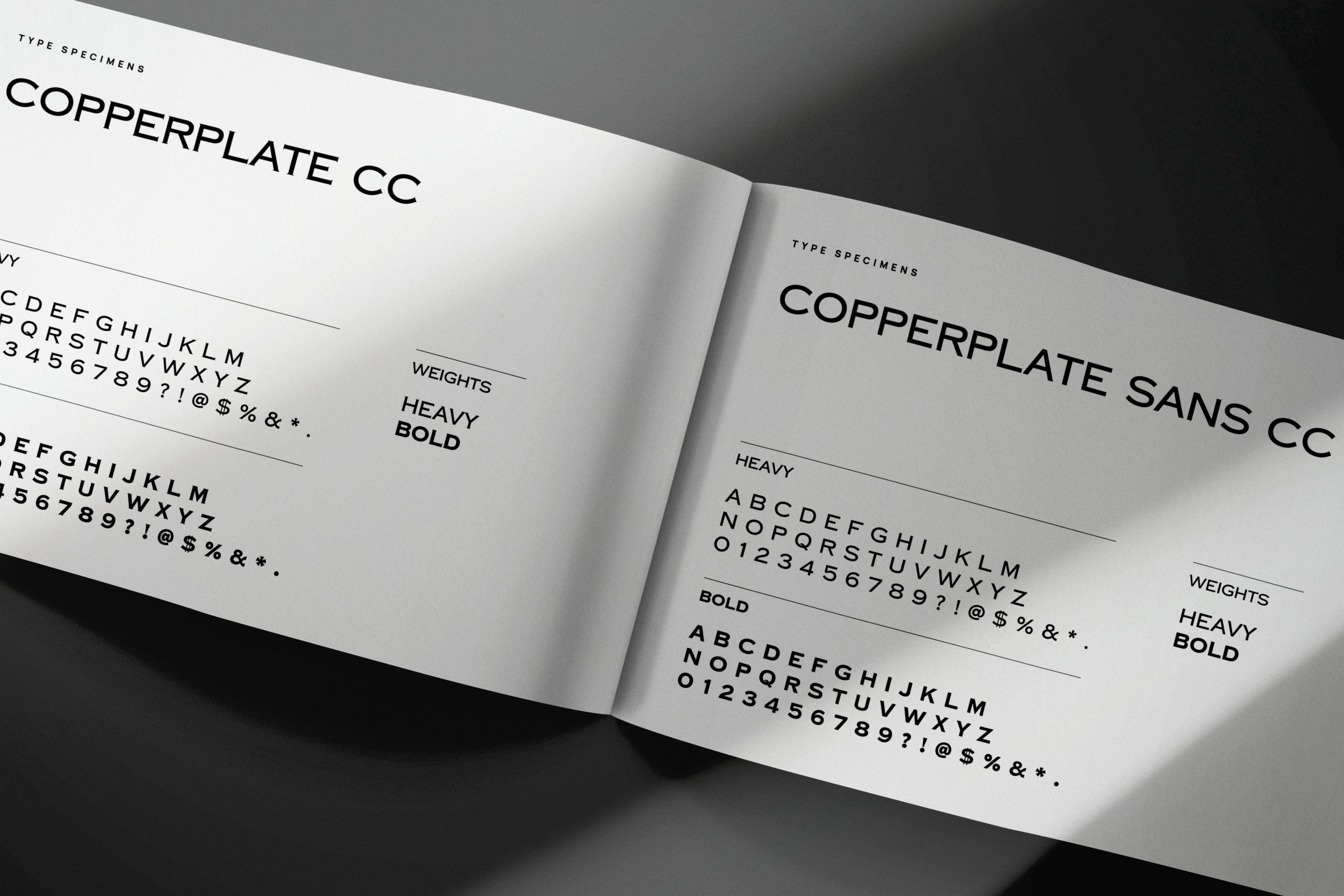
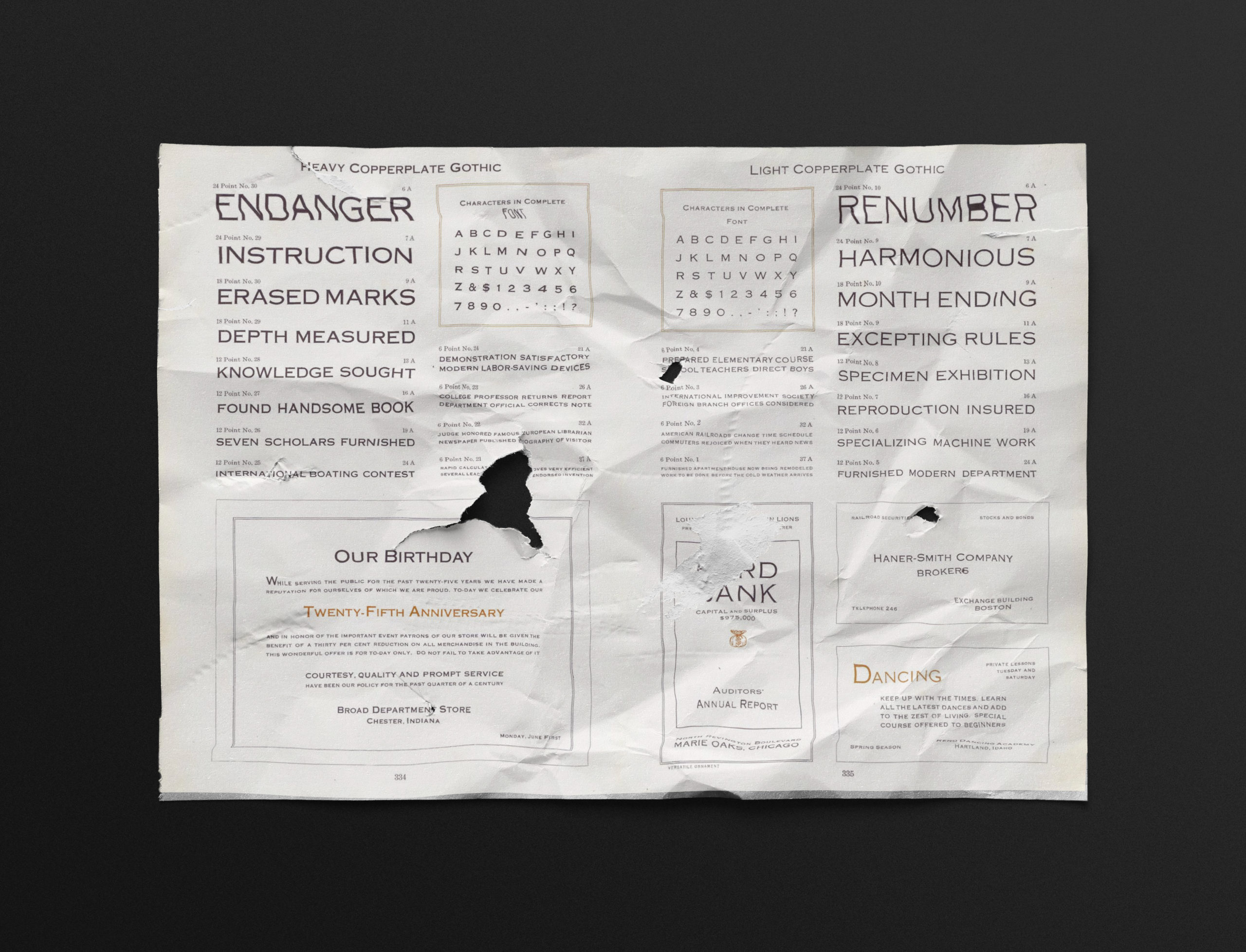
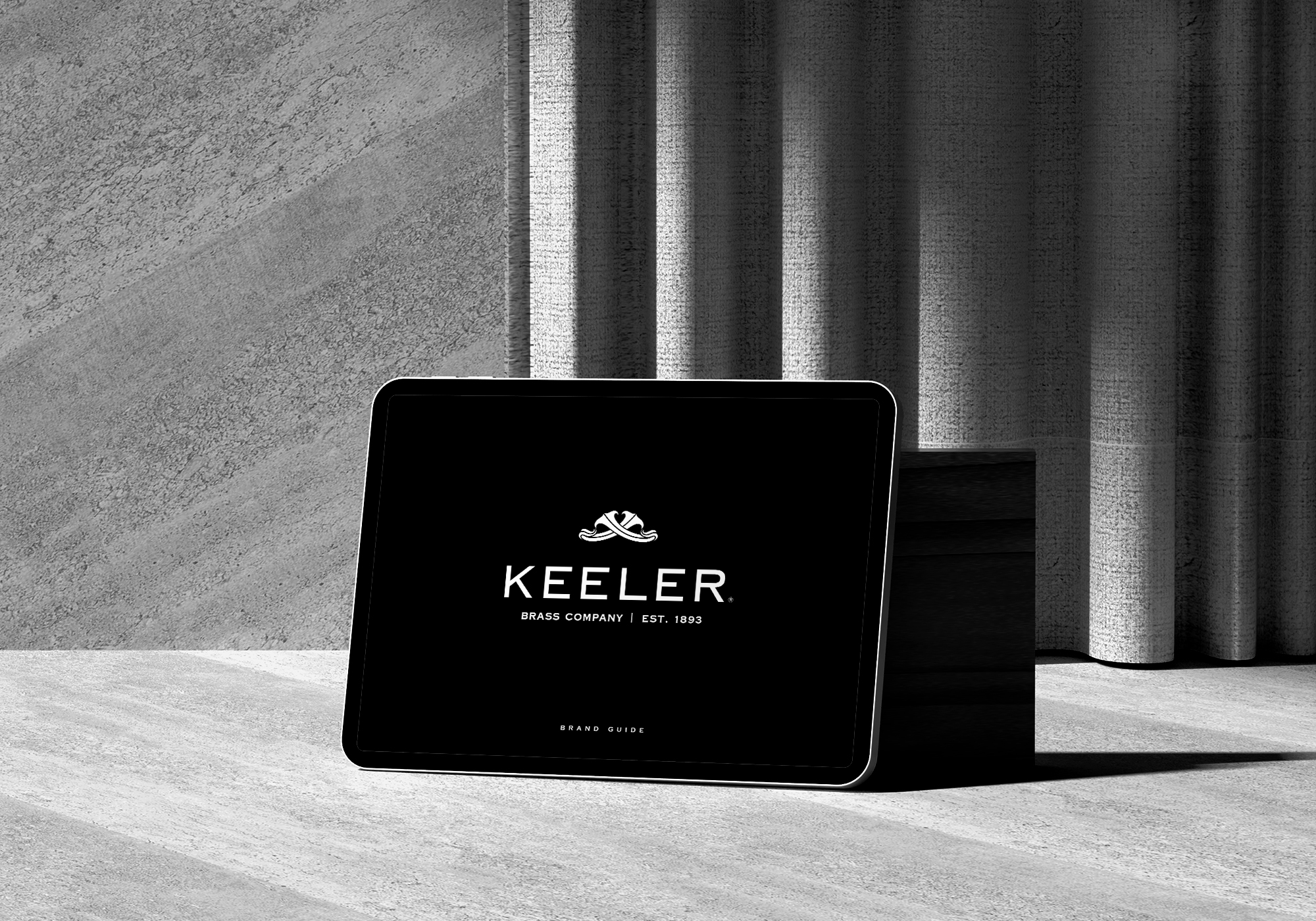
The Brand Guide
The brand guide, a labor of love spanning 100 pages of detailed explanation and imagery, serves as the ultimate tool for passing on knowledge from one designer to the next. It encapsulates the essence of the Keeler Brass Company, offering extensive insights into our history, legacy, brand voice, copy guidelines, taglines, and usage instructions.
Each chapter delves into key aspects such as exploring our rich heritage, defining our brand voice, crafting compelling copy, and utilizing taglines effectively. I played a pivotal role in laying the foundation for the majority of the content, with the assistance of a freelance writer for minor editing in later stages.
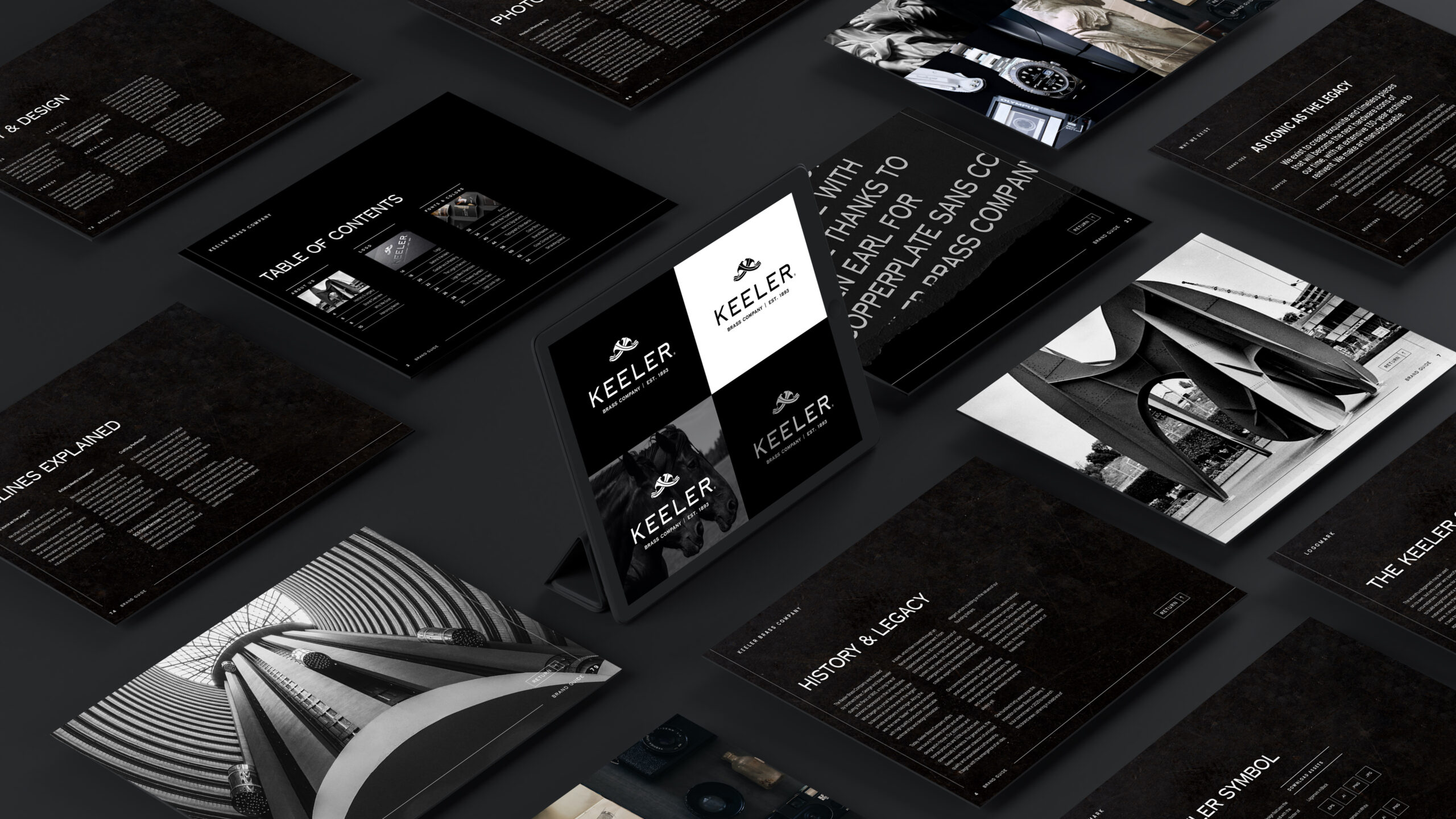
The Brand Experience
A paramount goal for any brand is to establish a lasting presence in the minds and hearts of its audience, extending even beyond its immediate industry. At Keeler Brass Company, our aspiration is unequivocal: to emerge as the ultimate authority in luxury hardware.
To achieve this vision, we recognize the significance of brand touchpoints. Leading up to KBIS 2023, for example, we meticulously crafted custom greeting cards, personally signed by our Director of Sales, to extend exclusive invitations to select showrooms. Each card was sealed with a bespoke wax seal bearing our distinctive logomark, adding a touch of sophistication to the outreach experience.
